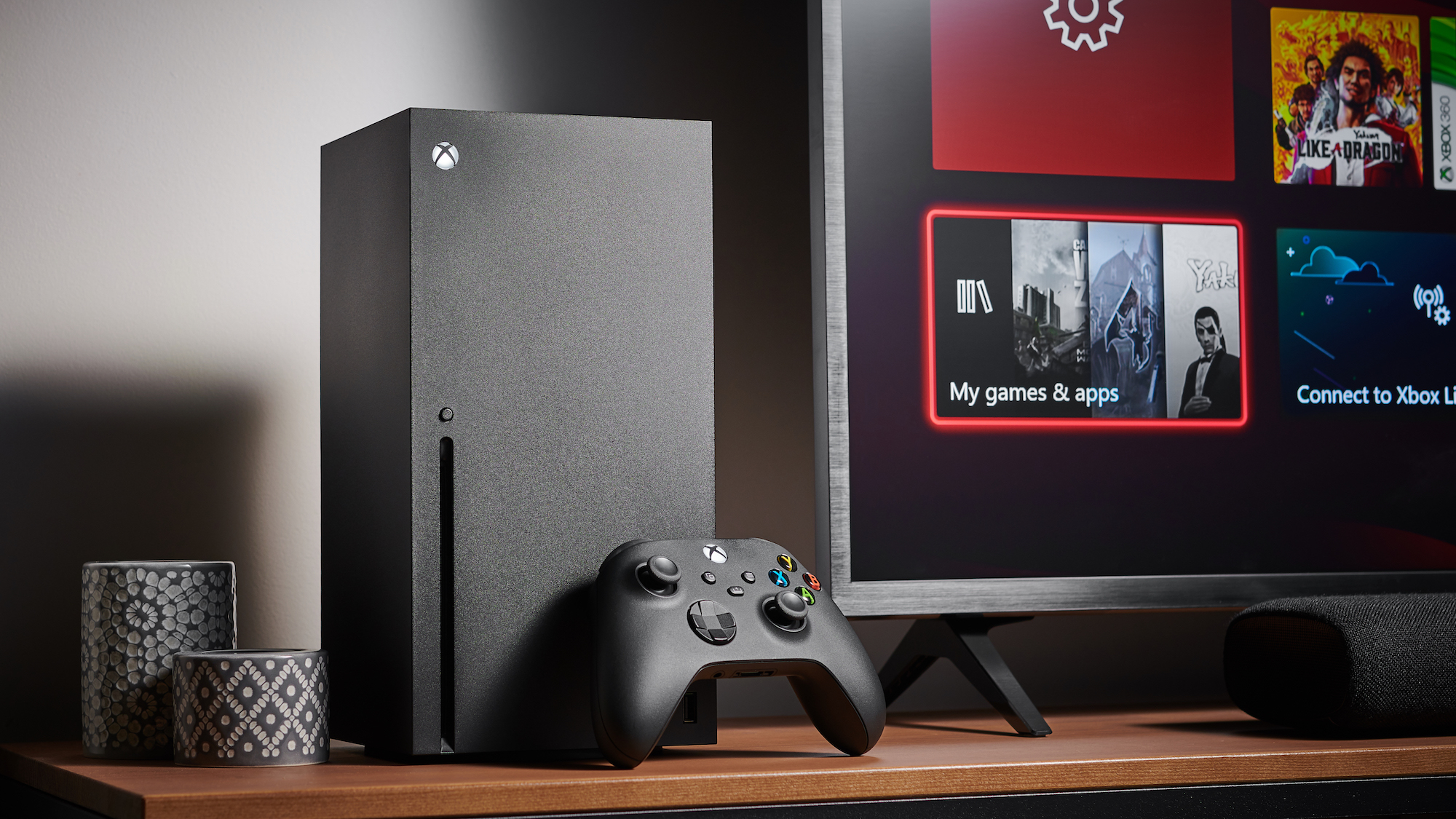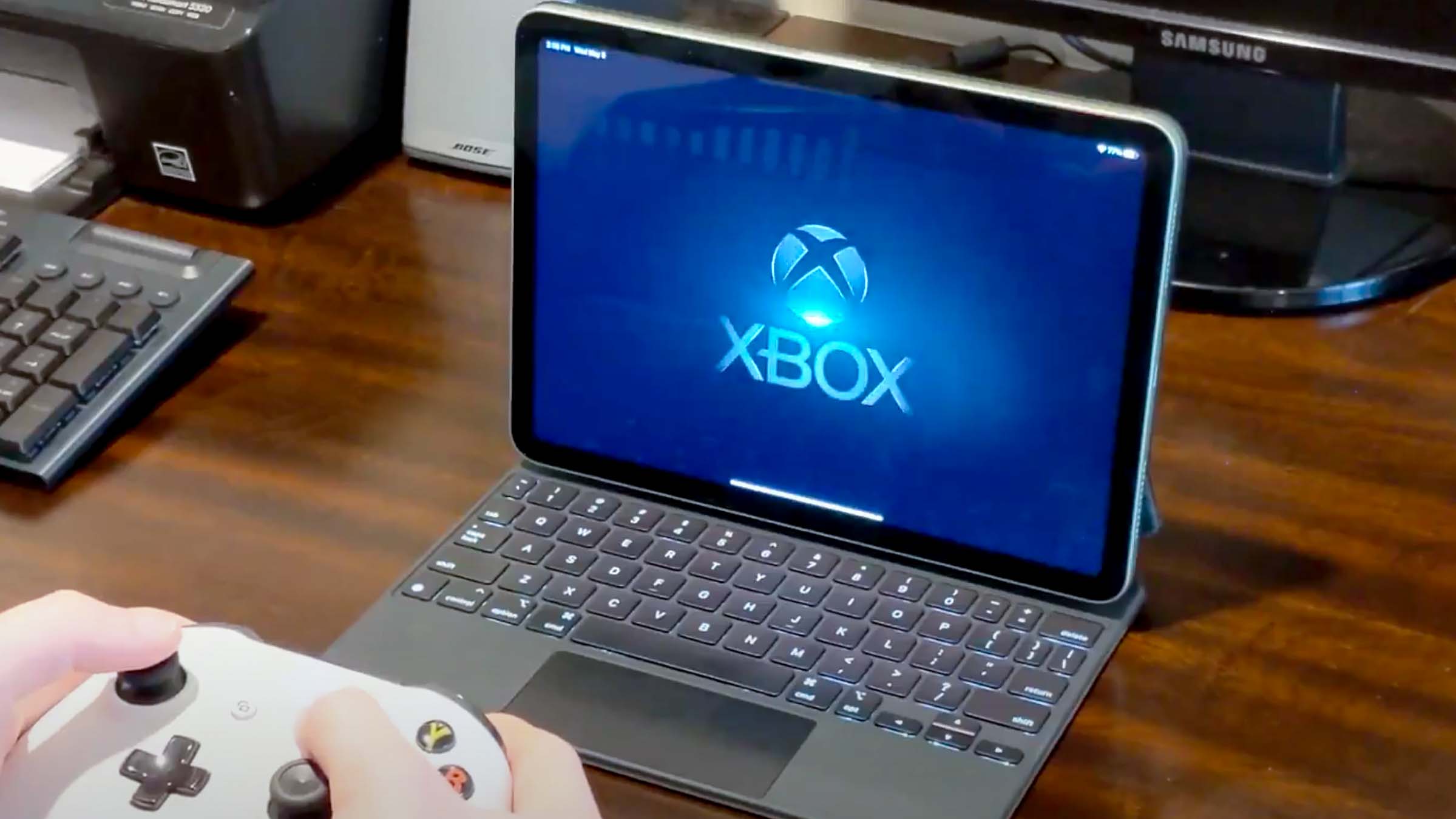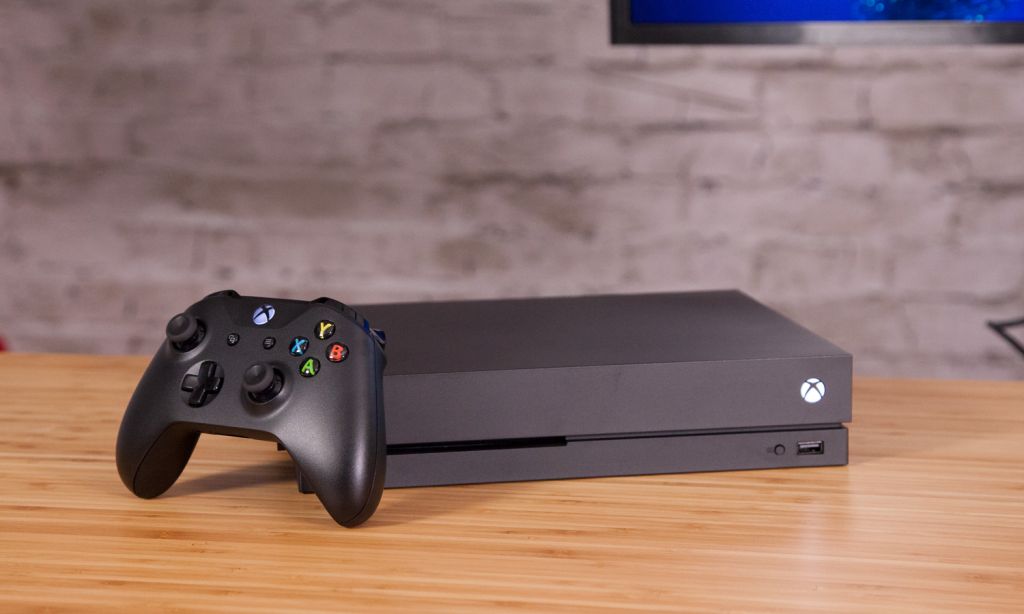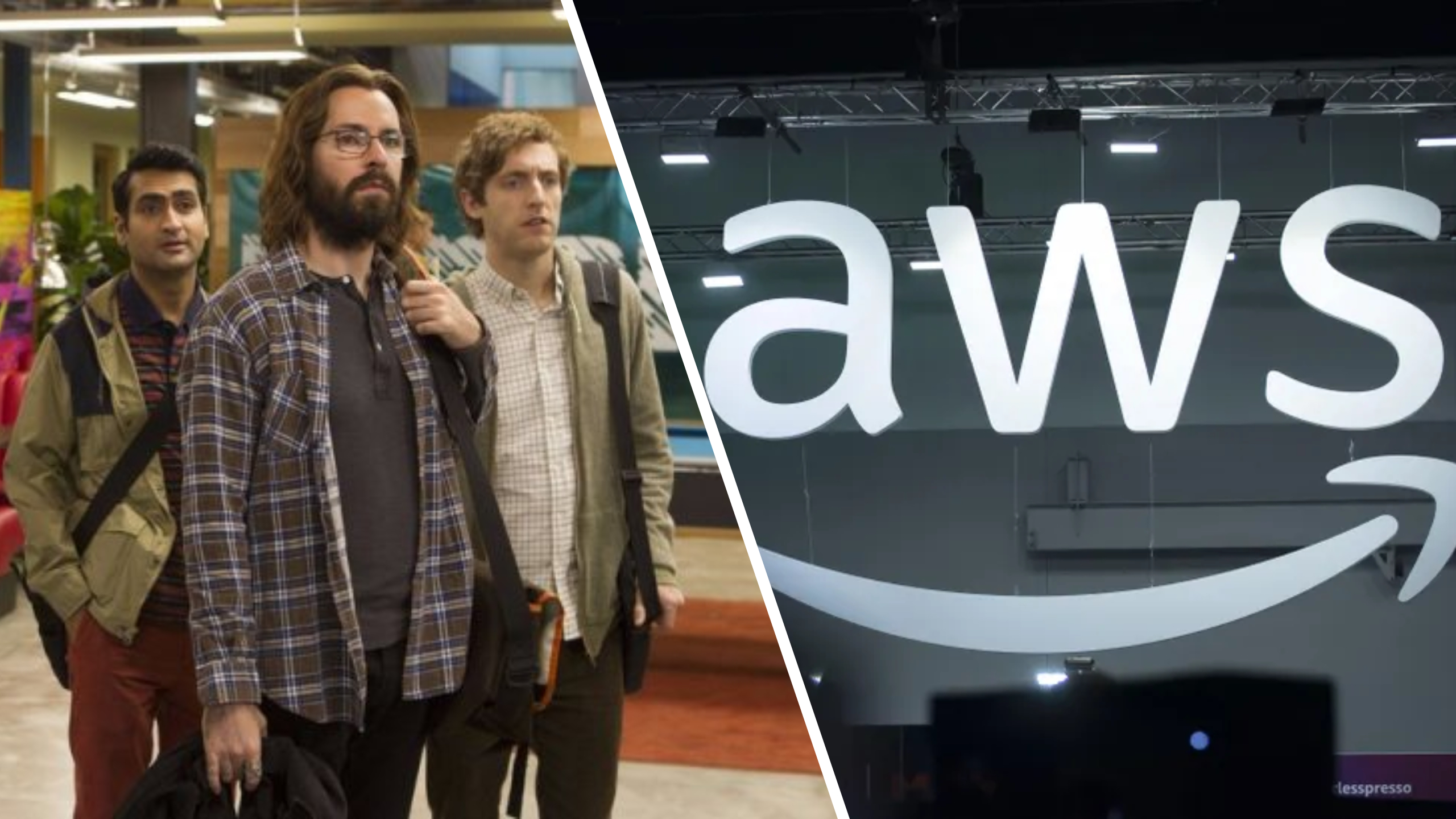Xbox cloud gaming could make console generations irrelevant
Xbox cloud gaming on consoles could change the industry forever

Here at Tom’s Guide our expert editors are committed to bringing you the best news, reviews and guides to help you stay informed and ahead of the curve!
You are now subscribed
Your newsletter sign-up was successful
Want to add more newsletters?

Daily (Mon-Sun)
Tom's Guide Daily
Sign up to get the latest updates on all of your favorite content! From cutting-edge tech news and the hottest streaming buzz to unbeatable deals on the best products and in-depth reviews, we’ve got you covered.

Weekly on Thursday
Tom's AI Guide
Be AI savvy with your weekly newsletter summing up all the biggest AI news you need to know. Plus, analysis from our AI editor and tips on how to use the latest AI tools!

Weekly on Friday
Tom's iGuide
Unlock the vast world of Apple news straight to your inbox. With coverage on everything from exciting product launches to essential software updates, this is your go-to source for the latest updates on all the best Apple content.

Weekly on Monday
Tom's Streaming Guide
Our weekly newsletter is expertly crafted to immerse you in the world of streaming. Stay updated on the latest releases and our top recommendations across your favorite streaming platforms.
Join the club
Get full access to premium articles, exclusive features and a growing list of member rewards.
The Xbox Series X had a lot of big news at Gamescom 2021, including a release date for Halo Infinite and an extended look at Forza Horizon 5. However, the most exciting announcement from Microsoft may have been the fact that Xbox cloud gaming will come to Xbox consoles this holiday season.
“Streaming a game to a platform that can download games” may seem counterintuitive, at first glance. After all, game-streaming is usually a poor replacement for running a title right from your hard drive. But over time, cloud gaming on consoles could evolve into something big. Taken to its logical extreme, it might even end console generations as we know them.
- Play the best Xbox Series X games
- Xbox Series X restock: Get the latest updates
- Plus: 5 things we want from Halo Infinite
Send in the cloud

In case you’re not familiar with Xbox cloud gaming, it’s exactly what the name would suggest. With an Xbox Game Pass Ultimate subscription ($15 per month), you can download hundreds of games to your Xbox Series X, Xbox Series S or Xbox One. However, you can also download most of those same games to your PC.
As of last year, you can stream select games to an Android phone or tablet; as of earlier this year, you can also stream select games to a Windows 10 Internet browser or an iOS device. Xbox cloud gaming has evolved from a console-centric service into a whole ecosystem.
No more waiting hours. Xbox cloud gaming will let you start streaming the game immediately while it downloads in the background.
While Xbox cloud gaming’s functionality is imperfect, it’s surprisingly good for a service that’s still technically in beta. When cloud gaming comes to Xbox consoles later this year, we have to imagine that it will follow a similar trajectory: some initial growing pains and a long beta period, with peak performance feeling almost indistinguishable from a downloaded game.
At first blush, this may seem like a totally superfluous feature for an Xbox. Cloud gaming is useful on mobile devices and Web browsers, where the host systems are probably not powerful enough to run big-budget games by themselves. But the whole point of an Xbox is to play games. Why stream games when downloading them would be a better experience?
First, there’s a convenience factor. If you’re curious about an Xbox Game Pass game, but not sure it’s really up your alley, you’re much better off playing it for 15 minutes right away than waiting an hour for it to download first. Even if you are sure it’s a game you want, you could start streaming the game while it downloads in the background. Xbox cloud gaming could replicate the instant gratification of bringing home a new game and playing it immediately.
Get instant access to breaking news, the hottest reviews, great deals and helpful tips.
Still, those are somewhat marginal cases. The biggest advantage that Xbox cloud gaming offers has to do with console generations — or, more specifically, its ability to transcend them.
The best new games on older hardware

In its initial Xbox Wire post about Xbox cloud gaming on consoles, Microsoft included the following bullet point:
“Play Gen 9-only Xbox games like Microsoft Flight Simulator and The Medium on your Xbox One via the cloud — coming in the future.”
Soon, you’ll be able to play new games on old consoles — and once that floodgate has opened, I don’t think it will ever close again.
In other words, you won’t need a PC or an Xbox Series X/S to play games that the Xbox One can’t run. Microsoft has already done away with the idea of a “console-exclusive” title, as it’s committed to releasing all of its first-party games on both PC and Xbox. However, Xbox cloud gaming on consoles takes the project one step further. Soon, you’ll be able to play new games on old consoles — and once that floodgate has opened, I don’t think it will ever close again.
Think about the reasons that people buy new consoles. Generally speaking, their old consoles work fine, so it’s not an issue of functionality. Newer consoles can run games in higher resolutions with better frame rates, but I don’t think that’s what gets most gamers to bite the bullet and plunk down $500 on a new system. Instead, I would argue that most people buy new systems because they can’t play the games they want on last-gen hardware. Maybe that’s not true right away — most PS5 and Xbox Series X/S games also have PS4 and Xbox One versions at the moment — but after a few years, you can either buy a next-gen console or be content with your backlog forever.
By expanding Xbox cloud gaming to consoles, Microsoft has essentially removed that obstacle. Now, if you’re content to play games at 1080p resolution and 60 frames per second (and, statistically speaking, many people are), you can hang onto your Xbox One for as long as you like. From a technical standpoint, there’s no reason why Microsoft couldn’t stream every Xbox Series X/S game it produces — or even every game from the next console generation a decade from now. Since all the legwork is on a Microsoft server somewhere, the Xbox One just needs to act as a receiver, and it’s more than powerful enough to do that indefinitely.
Game streaming obstacles
Granted, the Xbox One has graphical limitations. If we ever reach a point in time when 8K, 240 fps video games are the order of the day, it may not be practical to stream new games to an old platform. And yet, if the world of PC gaming has taught us anything, it’s that you can offer an amazingly wide range of graphical options on a title, and still make it perfectly playable.
There’s also the issue of game-streaming. Simply put, it’s neither as reliable nor as responsive as downloading a game and playing it directly from your console’s hard drive. Based on the evolution of streaming technology, however, this issue seems addressable within the next few years.
Think of how much better game-streaming is now than even five years ago — or how quickly video streaming went from “almost unwatchable” to “almost completely replacing physical media.” Perhaps gaming will never reach that level of streaming fidelity, but even so, “playing the game you want with a few compromises” may still be a worthwhile alternative to “paying $500 up front, plus $70 per game.”
What Xbox Cloud Gaming means for the future — and the competition
If this ambitious feature works as advertised, Microsoft may very well hit upon the next big evolution of console gaming. Sony and Nintendo would eventually have to follow suit, essentially making hard-and-fast console generations a thing of the past. In fact, generational lines have already blurred considerably, with hardware like the PS4 Pro and Xbox One X, as well as Microsoft’s Smart Delivery technology.
However things progress from here, the “discrete exclusive games for discrete console generations” model seems to receding into the past. On its surface, that seems like good news for gamers, and for their wallets. But if there’s one thing we’ve learned over the past two console generations, it’s that gamers really, really like buying new consoles. That may never change.
Also, we tried cloud gaming on a 5G smartphone and here's how that went!

Marshall Honorof was a senior editor for Tom's Guide, overseeing the site's coverage of gaming hardware and software. He comes from a science writing background, having studied paleomammalogy, biological anthropology, and the history of science and technology. After hours, you can find him practicing taekwondo or doing deep dives on classic sci-fi.
 Club Benefits
Club Benefits










